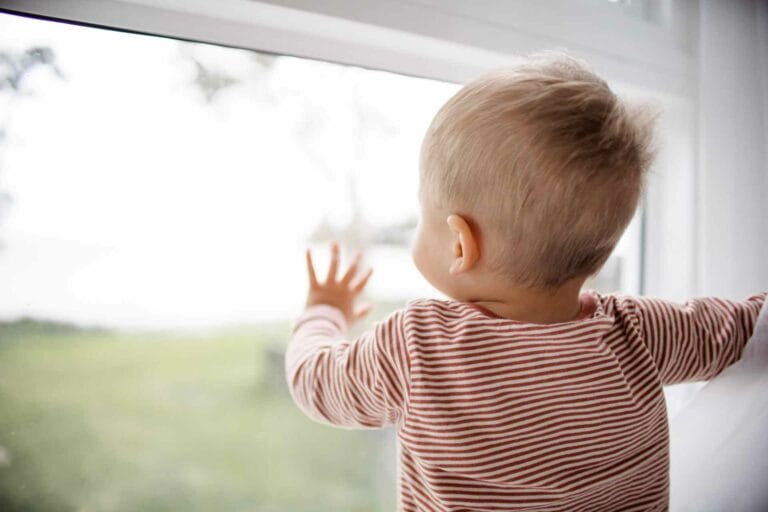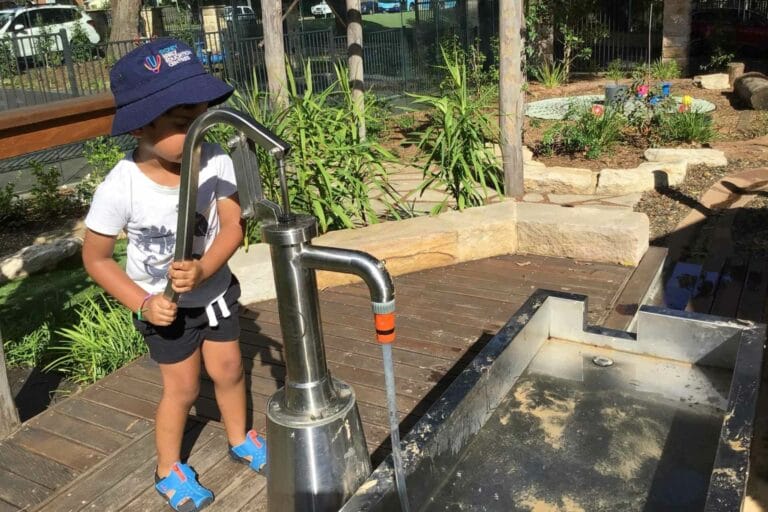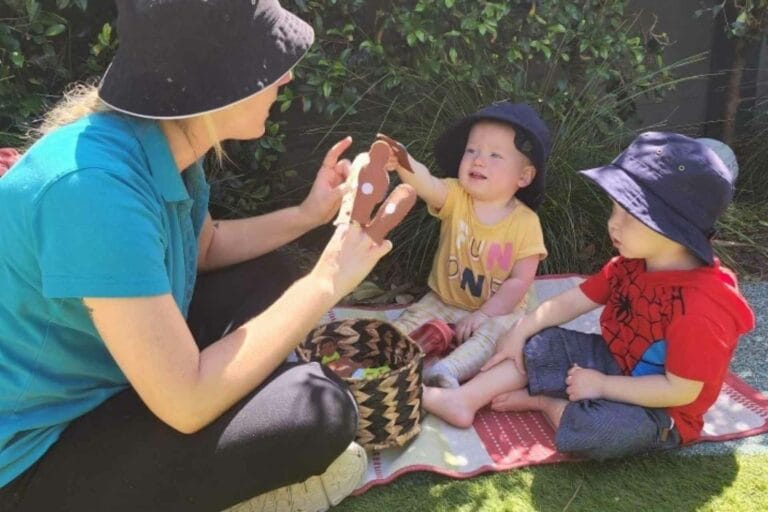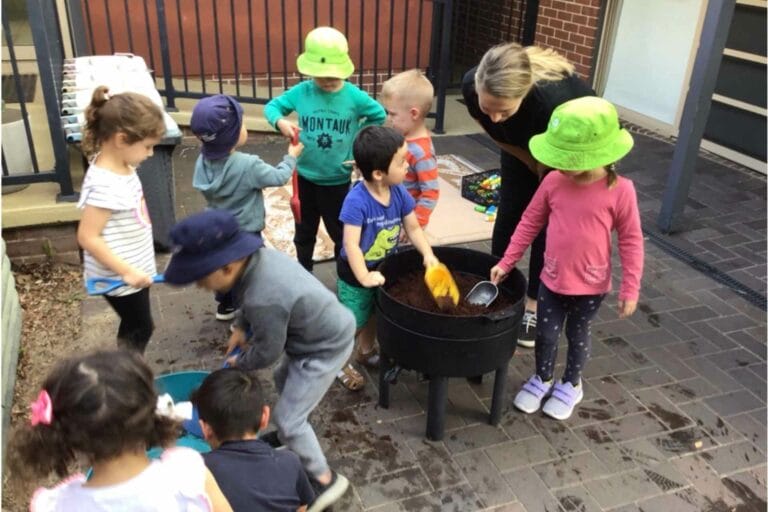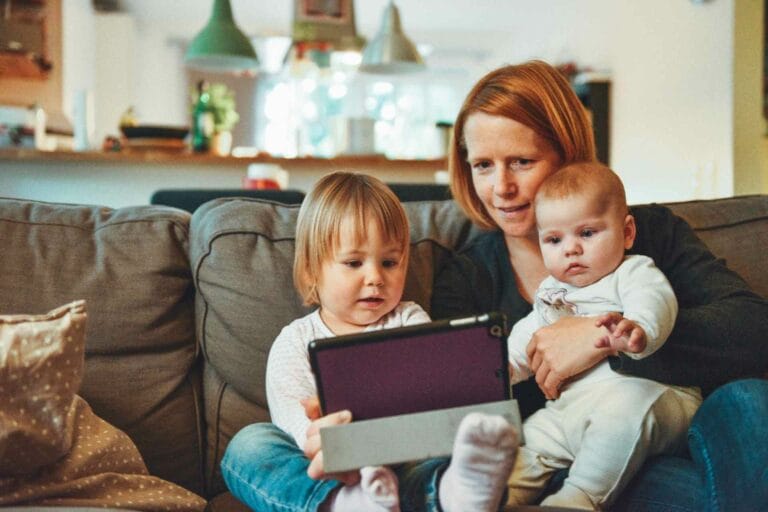Reconciliation Week 2022 – Be Brave, Make Change
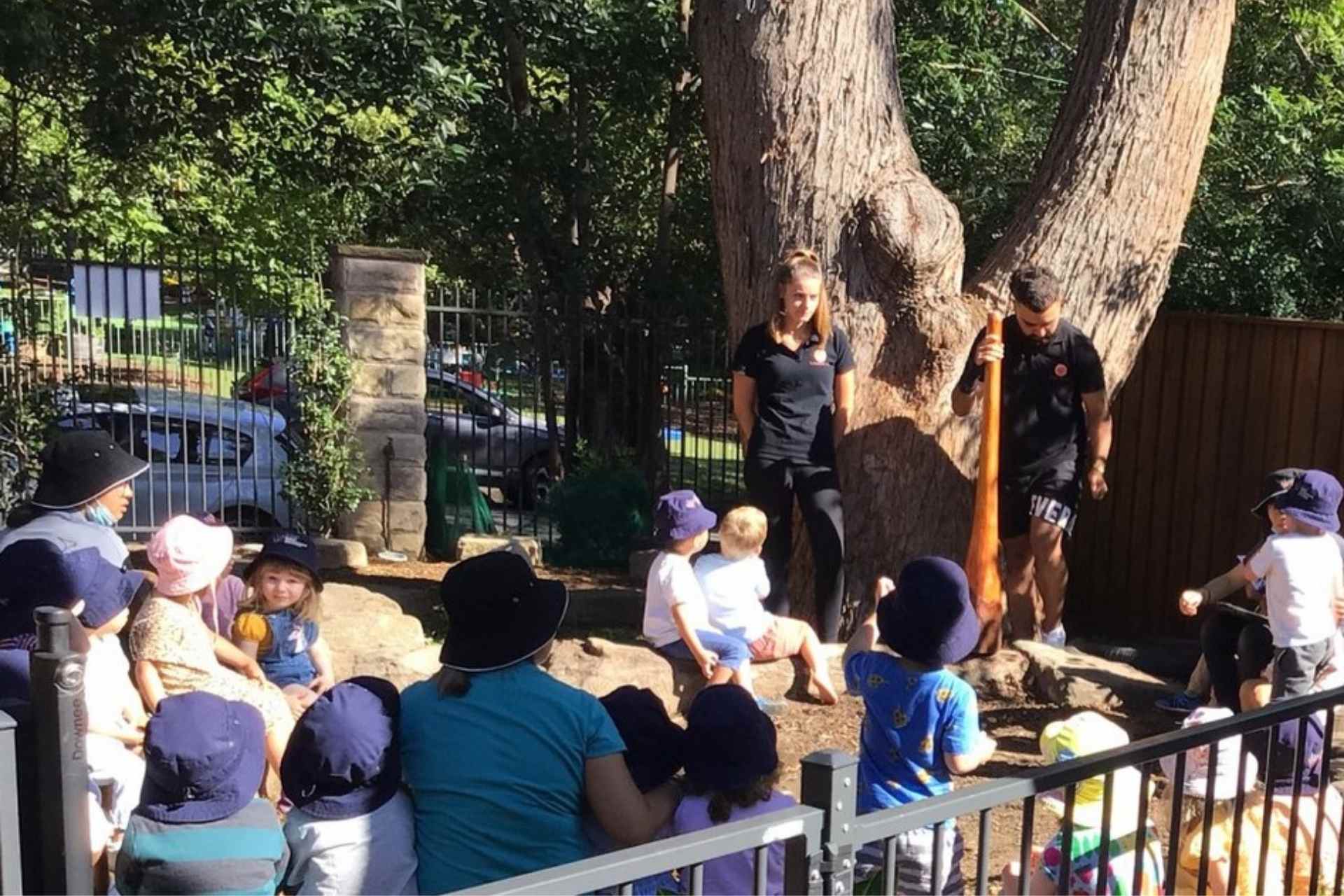
The Australia that we are currently living in has a multicultural identity and has been shaped by decades of people and their families moving to Australia and calling it home. Thousands of years of Indigenous culture have only strengthened our multicultural identity. Unfortunately, Indigenous Australians were not recognised or treated fairly when the First Fleet arrived on our shores in 1788 and this colonisation created issues between Indigenous and non-Indigenous Australians when Australia’s First People were forced to change the way that they lived.
‘Be Brave, Make Change’ – National Reconciliation Week 2022
It is the responsibility of all Australians to be brave and take action when it comes to reconciliation (About Bringing them Home) “Reconciliation is about strengthening relationships between Aboriginal and Torres Strait Islander peoples and non-Indigenous peoples, for the benefit of all Australians” (Reconciliation Australia). A formal reconciliation process began in 1991 following the ‘Report of the Royal Commission into Aboriginal Deaths in Custody (Reconciliation Australia) and has led us on a journey that involves telling the truth about the past and creating a shared history between Indigenous and non-Indigenous Australians.
Reconciliation Australia has the responsibility of leading all Australians towards a reconciled future. To support this process, they have detailed 5 dimensions of reconciliation, all with their own goals and actions. Progress must be made in all these areas equally for reconciliation to be achieved.
| Historical acceptance | Action: Acknowledge our past through education and understanding. |
| Race relations | Action: Overcome racism |
| Equality and equity | Action: Renew focus on Closing the Gap |
| Institutional integrity | Action: Capitalise on the RAP Program to create a wider range of opportunities for Aboriginal and Torres Strait Islander Australians |
| Unity | Action: Achieve a process to recognise Australia’s First Peoples in our Constitution (Reconciliation Australia) |
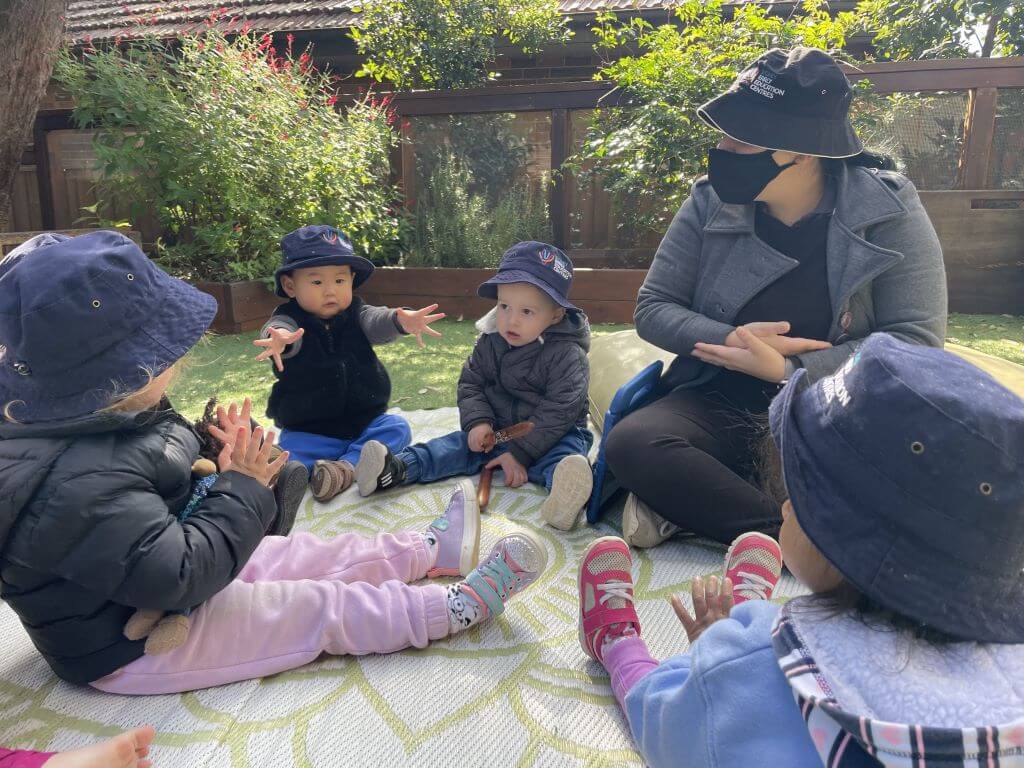
Aboriginal and Torres Strait Islander people have fought for their rights and their success is celebrated on significant days throughout the year. The 1967 referendum, held on the 27th of May, led to the changes in laws so that Aboriginal and Torres Strait Islander people would be counted as part of the population and allowed to be included in Commonwealth law. Mabo Day is celebrated on the 3rd of June each year, in recognition of the day that the High Court overturned the legal concept of “terra nullius” and acknowledged the traditional rights of Indigenous people to their land. Reconciliation Australia has officially used these 2 significant days to mark the beginning and end of National Reconciliation Week each year. (Reconciliation Australia).
““There is only one way to look at things, until someone shows us how to look at them with different eyes’’
PABLO PICASSO
Children’s participation in quality, culturally inclusive early childhood education and care services leads to better long-term outcomes for all children (SNAICC, 2012). Children will naturally become aware of differences amongst their peers throughout their early years and experiences during this time can greatly shape their ideas and attitudes. Children’s natural curiosity provides opportunities to discuss differences and display pride in each child’s own identity, striving for equality, expecting respect and celebrating difference (Australian Human Rights Commission, 2016).
The Early Years Learning Framework (EYLF) and National Quality Standards (NQS) remind early education and care services of the importance of cultural competence (Australian Human Rights Commission, 2016). “Cultural competence is about our will and actions to build understanding between people, to be respectful and open to different cultural perspectives, strengthen cultural security and work towards equality in opportunity” (Livingstone, 2014). For early childhood educators, it’s about embedding practices that empower children to connect to their own culture, explore their identity and feel a sense of belonging. The Australian Human Rights Commission (2016) reminds us that the United Nations’ Conventions on the Rights of the Child insists that all children have the right to feel accepted and respected, and the importance of connecting to culture.
According to Rhonda Livingstone (2014), critical reflection is key to cultural competence and needs to take place at an individual level as well as at the service level and at the system level. According to the EYLF, to be culturally competent, an educator will:
- Be aware of one’s own worldview
- Develop positive attitudes towards cultural differences
- Gain knowledge of different cultural practices and world views, and
- Develop skills for communication and interactions across cultures (Australian Human Rights Commission, 2016).
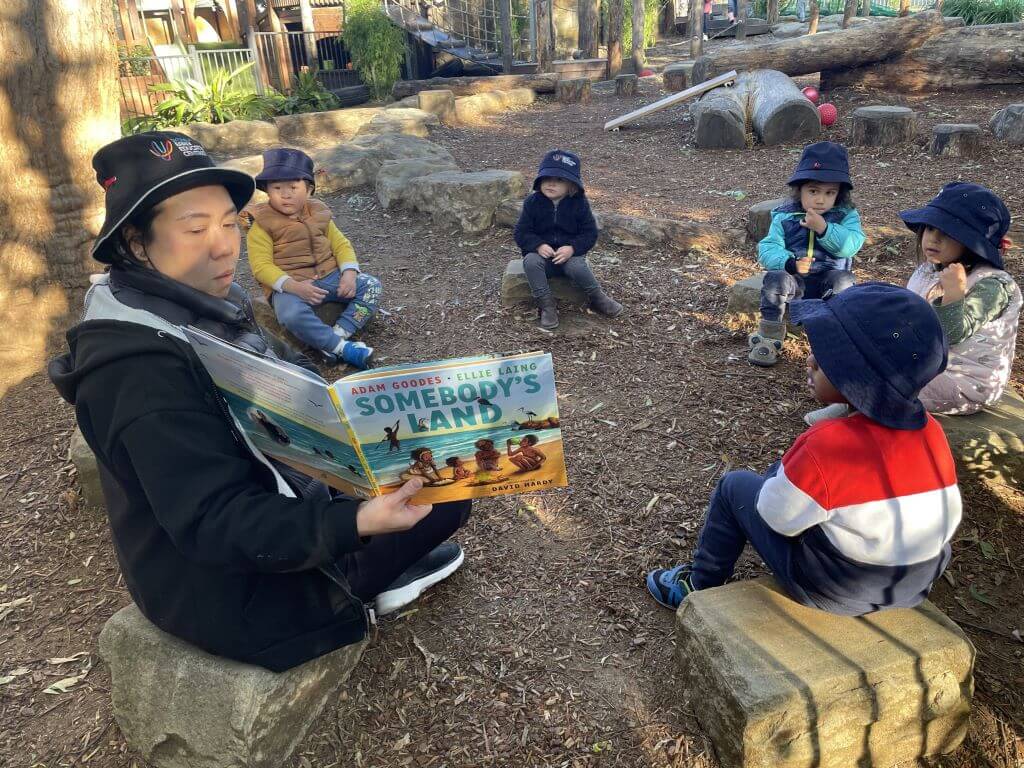
How and when will reconciliation happen?
Australian people need a safe place to start, make mistakes, and grow. The journey towards reconciliation is a challenging one where people need to be brave, to be uncomfortable as you challenge assumptions, listen to Indigenous people and learn the truth about Aboriginal and Torres Strait Islander history and learn about their culture (Reconciliation Australia, 2021). Reconciliation is an ongoing process that takes time. It involves intentional efforts and challenging assumptions and prejudices. Becoming more knowledgeable about Indigenous people, their history and their culture is essential (Early Childhood Australia, 2014).
Education is key to reconciliation as the next generation will grow up knowing the truth about our shared histories (Reconciliation Australia, 2021). Knowing the truth will prevent the injustices that our First People experienced from happening again, according to Turnbull. Reconciliation is a slow process that requires change at all levels – from individual Australians exploring their own biases to the nation looking at their government policies and restoring equity and justice. We need to close the gap between Indigenous and non-Indigenous Australians (Reconciliation Australia, 2021).
The events that make up the true shared history of Australia have had a massive impact on Aboriginal and Torres Strait Islander people and their culture. There continues to be intergenerational effects that relate to their health as well as social and economic impacts (About Bringing them Home). Indigenous Australians only makeup 3% of the population and so rely on allies to help raise the profile of issues that affect them (Finlay, 2019).
What is Sydney Early Education Centres (SEEC) doing to support reconciliation?
At all our early education and care services, we value practices and learning opportunities that support cultural competence. Our curriculum begins with our philosophy ‘acknowledging and respecting the heritage and the Original Custodians of the land.’ Each of our services has formed a Reconciliation Action Plan (RAP) working group that includes educators, leadership team, families and community members. This working group has led the publishing of each RAP and meets regularly to critically reflect on our journey and collaborate to make positive changes. Members access the Narragunnawali platform for information and resources.
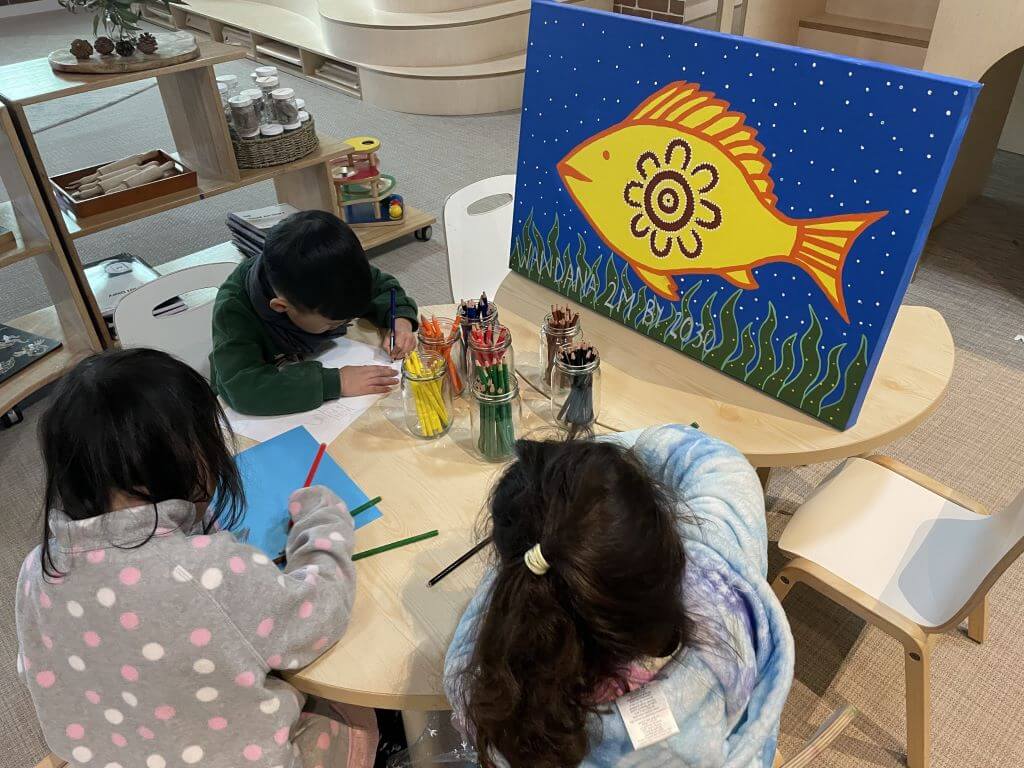
In support of reconciliation and our RAP’s, we, at SEEC:
- Acknowledge diversity within each of the Indigenous nations. Turnbull (2020) agrees that this is important;
- Are inclusive of Aboriginal and Torres Strait Islander perspectives throughout the year through a range of learning experiences and inclusions within the learning environment and rituals;
- Use discussions taking place in a yarning circle with a talking stick to support all children to have a voice;
- Include in our daily rituals within each learning community an Acknowledgement of Country;
- Display the Aboriginal and Torres Strait Islander flags within our learning environments to help create a culturally safe space;
- Have purchased authentic Indigenous artworks and artefacts from Indigenous artists and use these and illustrations in books to explore Indigenous art with the children;
- Use digital technology to enhance learning experiences including Playschool episodes and live online story time with Aunty Joy Murphy and Captain Starlight reading the book ‘Welcome to Country’;
- Plan incursions, including Animal of the Dreaming Zoo experience from Taronga Zoo;
- Celebrate events such as NAIDOC week;
- As a team take the time to critically reflecting on days like Australia day, which Indigenous Australia may see as Invasion Day. We use this time to be brave, reflect, get uncomfortable and learn something new is important (Reconciliation Australia, 2021); and,
- Engage in ongoing professional development for educators to increase our knowledge and cultural competence as individuals and as a team.
What can families do to support reconciliation?
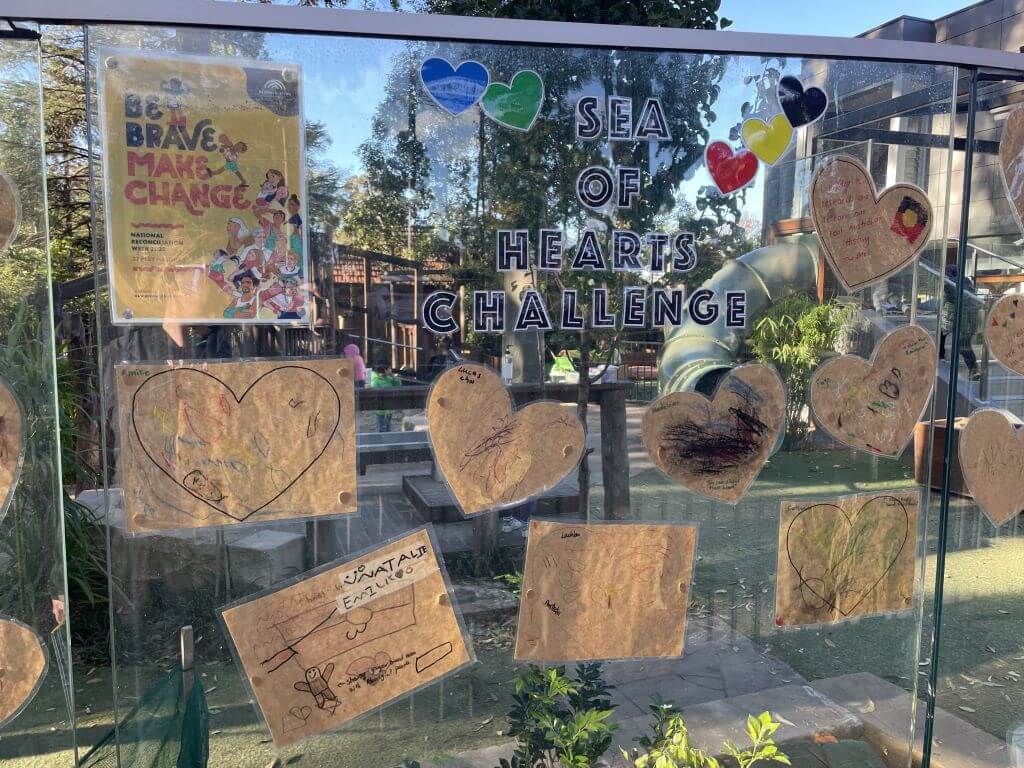
- Start by reflecting on your own stereotypes and biases;
- Consider the variations within cultures, including our Indigenous culture with hundreds of nations, each with its own language, beliefs and practices (Government of South Australia Department of Education and Child Development, 2014);
- Be a good ally – say something when you hear someone say something inappropriate (Finlay, 2019);
- Get involved in your centres Reconciliation Action Plan – you could join the RAP working group or comment on Storypark posts (ACECQA, 2018);
- Educate yourself about Aboriginal and Torres Strait Islander history and culture with books such as ‘Welcome to Country’ by Marcia Langton (Dodson, 2021);
- Engage in learning opportunities with your child. You could look at and discuss the diversity of the Indigenous Nation using a map. You could also use digital resources such as Play School, Little Yarns podcasts and episodes of ‘Little J and Big Cuz’ (ACECQA, 2018; Turnbull, 2020); and,
- Link in with your local community through events for National Reconciliation Week (27th May – 3rd June), NAIDOC Week (early July), National Sorry Day (26th May) and Mabo Day (3rd June).
References and Further Reading:
- About Bringing them Home
- ACECQA (2018). QA 1 – Be Part of Reconciliation
- Australian Human Rights Commission (2016). Building Belonging. A toolkit for early childhood educators on cultural diversity and responding to prejudice
- Early Childhood Australia (2014). National Quality Standard Professional Learning Program: Talking about Practice: Exploring Reconciliation in Early Childhood Practice, Volume 71.
- Dodson, S (2021). 10 Positive Ways to Engage with Indigenous Issues – Reconciliation NSW
- Finlay, SM (2019). How to be a good Ally – Reconciliation NSW
- Government of South Australia Department of Education and Child Development (2014). Perspectives on Aboriginal and Torres Strait Islander Cultural Competence.
- Livingstone, R (2014). What does it mean to be culturally competent? – ACECQA
- Reconciliation Australia
- Reconciliation Australia (2021). 2021 State of Reconciliation in Australia Summary Report
- SNAICC. ESA Training EYLF Factsheet 1
- SNAICC (2012). Cultural Competence in Early Childhood Education and Care Services, SNAICC Consultation Overview
- Turnbull, S. (2020). How to raise culturally aware Kids. ABC Everyday
We hope that this article encourages you to be brave, and make change in your local area. If you would like to find out more about our service you can book a tour or send us a message.

Written By
Melissa Garthwaite, CEEC’s Educational Leader
